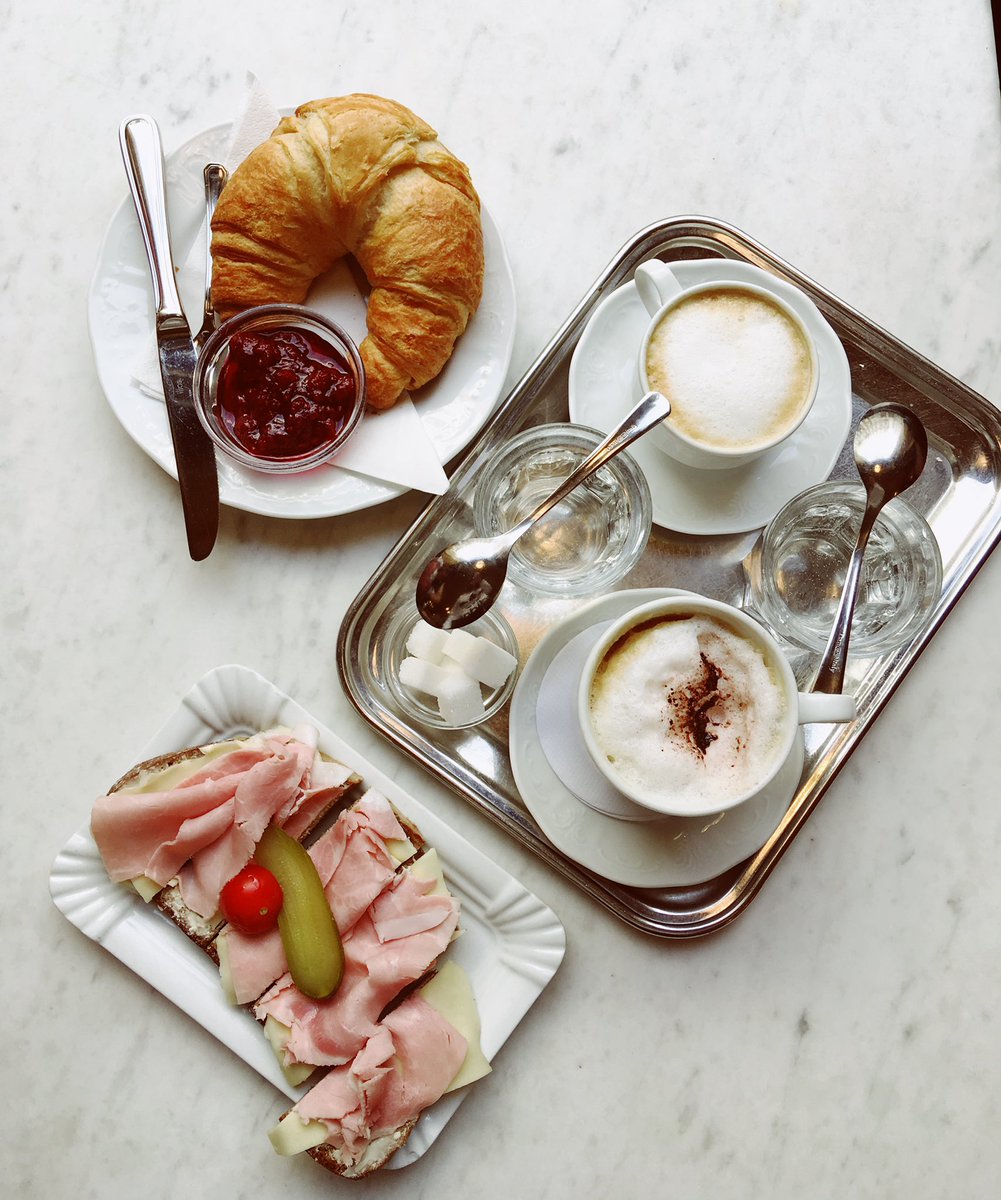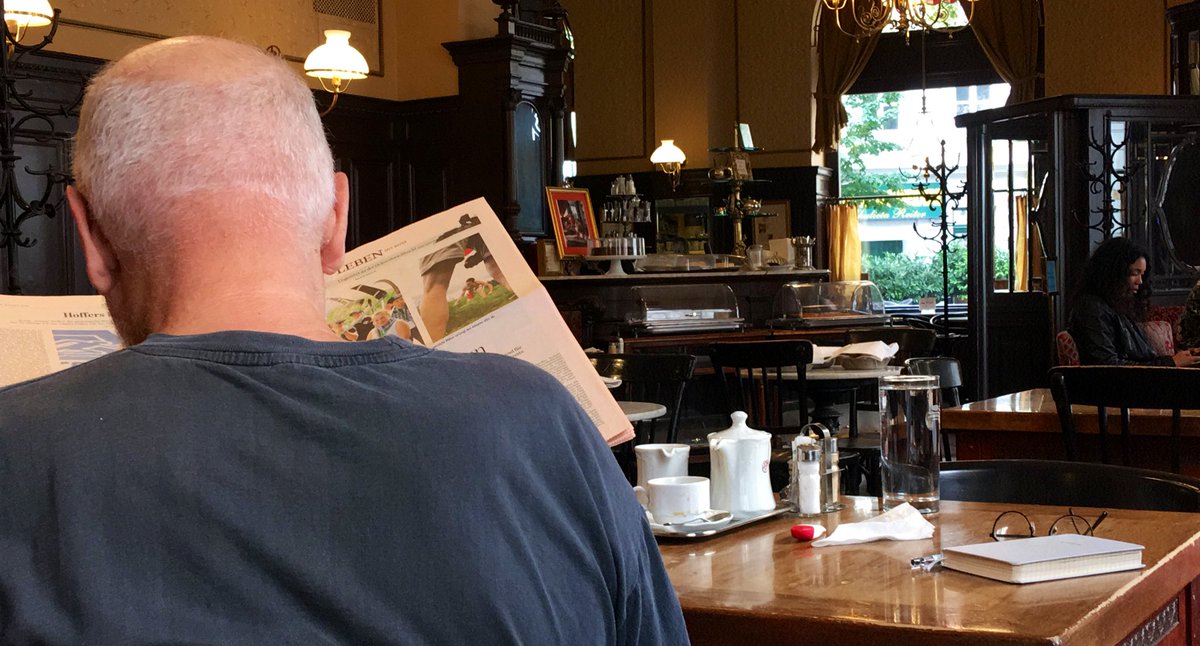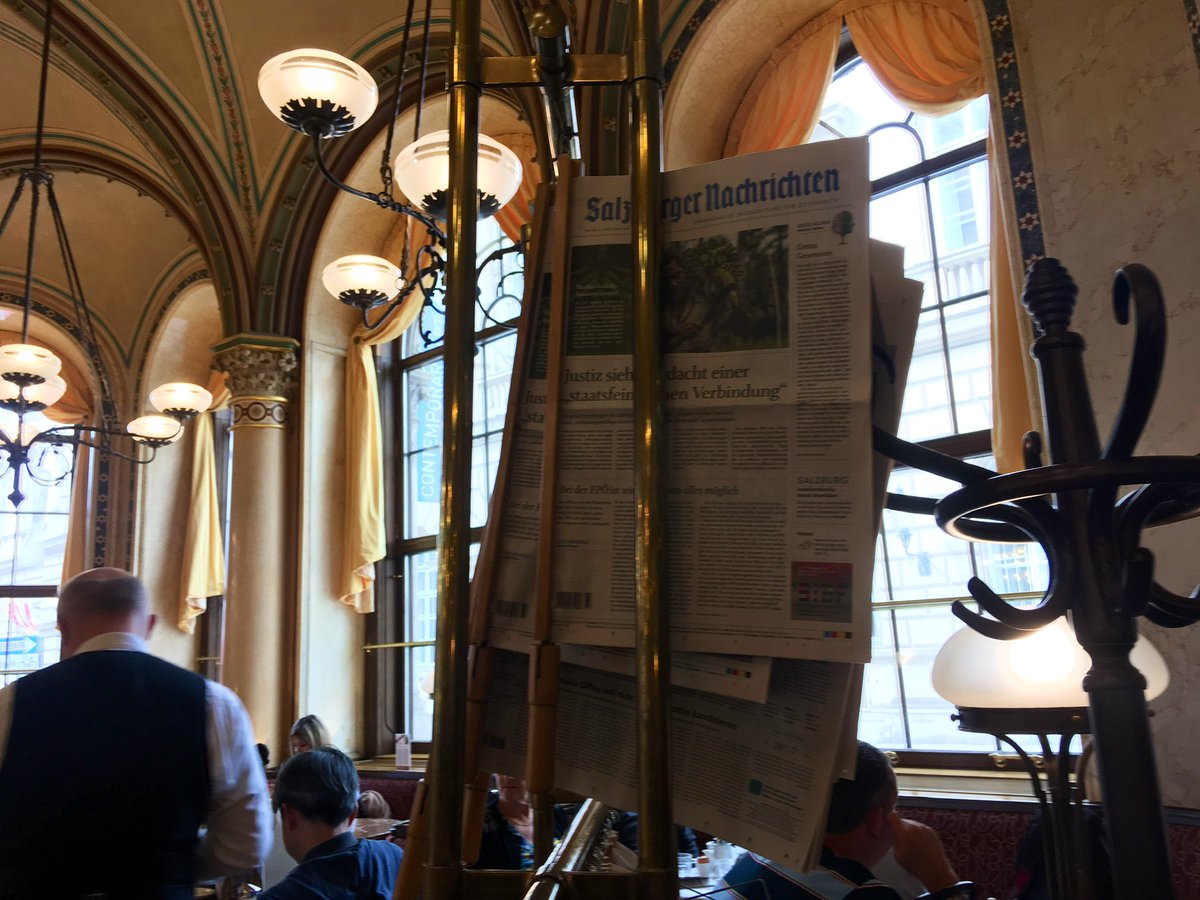Let’s talk about coffee culture today; ever wondered how the way coffee it’s made & consumed is either affected, or affects societal behaviour?
Parisian café culture, includes a small round table that fits a tiny cup of coffee & a croissant, with your chair turned towards the sidewalk, allowing you to watch people and the world go by. It’s a slow way of savouring coffee, the realities unfolding around you, or life.
US coffee includes a variety of toppings, syrups, & combinations of diff. types of milk & beans. The endless blends gives you the impression of creating your own identity (iced, coconut milk, whipped cream). Shops provide you with wifi; & turn into an extension of your workplace.
US capitalism segmented the market & allowed customers to exercise choice to fit their values & tastes (fair trade, Guatemalan, flavoured). Jonathan Morris evokes Bourdieu’s cultural capital. Even the choice of the cup transmits an important message.
In Italy, coffee (which by default means espresso) is consumed over the counter. Baristas are concerned with serving coffee as fast as possible. This tradition boomed during Italy’s post-war “economic miracle”. Coffee is chugged down in the morning, during the work day etc.
Side note: never order a cappuccino after 11am. Any milk-based beverage is only consumed in the morning in Italy. Italians consider milk to be very heavy when you drink it after lunch.
In Vienna, coffee drinking is an art. Cafés look like public living rooms. Cups are served on silver trays with a cup of water. You can find the same faces every Sunday, reading their newspapers & baristas memorize your order.
When talking about Viennese coffee culture, we cannot overlook how the setting itself harboured Jewish intellectuals, like Zweig, Roth etc. They were the first to be destroyed by the Nazis in 1938. They were also the link between Yiddish & Hebrew literatures.
UK coffee culture..what? That would be TEA, Sir. Georges Mikes claims that to achieve perfect British integration, you must never refuse a cup of tea, & never argue about the weather.
He also suggests that this "aromatic & oriental beverage was transformed into a colourless & tasteless gargling-water" for it to become the UK national drink. It symbolises cultural & economic colonialism & imperialism.
Scandinavian countries are the world’s largest consumers. Coffee is so anchored in their culture, that the day is divided according to coffee breaks. It is their national drink; since they are not well exposed to light & sun; energy levels drop quickly, hence the need for coffee.
The use of coffee became more common amongst peasants; as tea was an upper-class beverage. The word FIKA in Swedish = coffee break. It comes from a Swedish peasant dialect: Fika was a reversed form of the word coffee=kaffi = FIKA.
Just like Meza, coffee in Lebanon is a symbol of sharing, sociability & collectivism. The pot is shared, & you are required to linger until the beverage is consumed. The thick residue at the bottom, inspires women to extend their stay and use it for fortune telling & gossip.
The Edith coffee culture: something sweet (cake), something dark & bitter (coffee), with a pinch of solitude

 Read on Twitter
Read on Twitter





